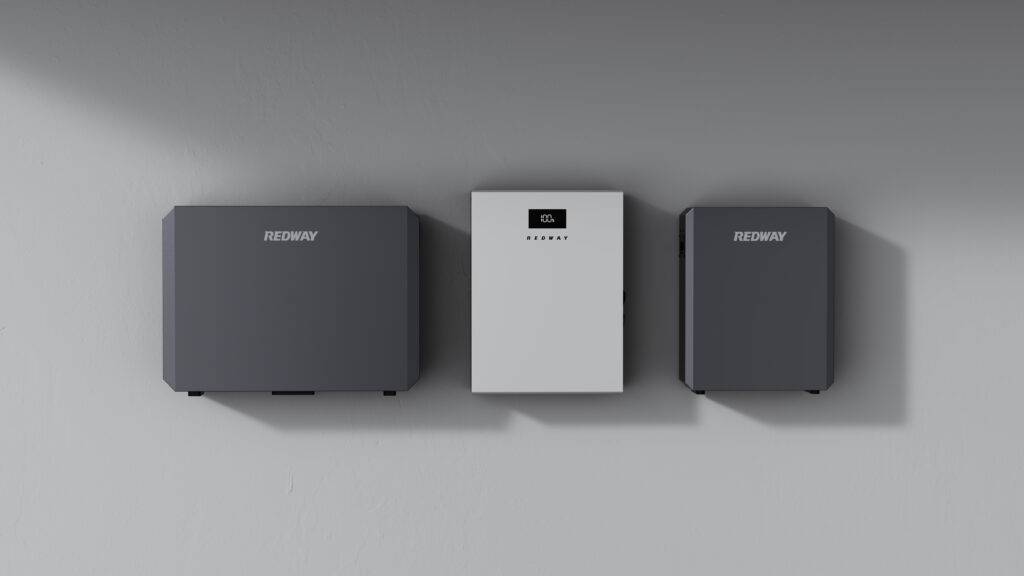Are you considering adding solar power to your home or business? If so, you’ll need to choose the right battery to store that energy for later use. With so many options on the market, how do you know which one is best for your needs? In this blog post, we’ll explore the types of solar batteries available and walk through the factors to consider when making your selection. We’ll even cover how to calculate the cost of a solar battery so you can make an informed decision. Let’s dive in!

#post_seo_title
What are Solar Batteries?
Solar batteries are a crucial component of any solar power system. They store the energy generated by your solar panels, ensuring that you have a steady supply of electricity even when the sun isn’t shining.
These batteries come in various shapes and sizes, but they all work on the same basic principle: they use chemical reactions to convert electrical energy into stored chemical energy. When you need electricity later on, those chemical reactions are reversed and electrical energy is released back into your home or business.
One thing that sets solar batteries apart from traditional lead-acid batteries is their ability to discharge deeply without damaging the battery. This makes them ideal for use with renewable energy sources like solar power.
When shopping for a solar battery, it’s important to consider factors like capacity (how much storage do you need?), efficiency (how much of your generated power will be lost during charging/discharging?), and warranty (how long can you expect the battery to last?). With these considerations in mind, you’ll be better equipped to choose a battery that meets your needs.
Types of Solar Batteries
When it comes to solar batteries, there are three main types: lead-acid, lithium-ion and flow. Each type has its own advantages and disadvantages depending on the specific needs of your solar energy system.
Lead-acid batteries are the most commonly used in solar systems because they are more affordable compared to other options. However, they have a shorter lifespan and require regular maintenance which can increase costs over time.
Lithium-ion batteries have become increasingly popular due to their longer lifespan and higher efficiency compared to lead-acid batteries. They also require less maintenance overall but come with a higher price tag.
Flow batteries are relatively new but offer some unique advantages such as scalability for larger systems and longer lifespan than both lead-acid and lithium-ion options. However, they also come with a significantly higher cost upfront.
Ultimately, the type of battery you choose will depend on factors such as budget, space available for installation, expected usage patterns, required capacity and desired lifespan. It’s important to carefully consider each option before making a decision that will impact the efficiency and longevity of your entire solar energy system.
Factors to Consider When Choosing a Solar Battery
When it comes to choosing the right solar battery for your system, there are several factors that you need to consider. One of them is the capacity of the battery which refers to how much energy it can store. You want a battery with a high capacity if you’re planning on using a lot of power or during times when sunlight is limited.
Another important factor is the depth of discharge (DoD) which refers to how much energy can be used before recharging is required. A higher DoD means more usable energy but also reduces battery life over time so finding a balance between these two factors is crucial.
You should also consider the round-trip efficiency which measures how much electricity can be stored and then retrieved from each charging cycle. This helps determine how efficient your system will be overall.
The temperature range that the battery works best in should also be taken into account since extreme temperatures could negatively affect its performance and lifespan. Think about whether you want an all-in-one integrated unit or separate components as this may affect installation costs and ease of use.
All these factors require careful consideration before making any decision regarding what type of solar batteries to purchase for your home or business.
How to Calculate the Cost of a Solar Battery
When choosing a solar battery, it’s important to consider the cost. However, calculating the cost of a solar battery can be tricky as there are several factors to take into account.
The first factor is the type of battery you choose. Lead-acid batteries are typically cheaper upfront but have a shorter lifespan and require regular maintenance. Lithium-ion batteries, on the other hand, are more expensive but last longer and require less maintenance.
Next, you’ll need to consider the size of your system and how much energy storage capacity you need. A larger system with more storage capacity will obviously cost more than a smaller one.
You should also factor in any additional equipment needed for installation such as inverters or charge controllers. These pieces of equipment can add significant costs to your overall system.
Don’t forget about ongoing costs such as maintenance and replacement expenses over time. It’s important to budget for these expenses when considering the total cost of your solar battery system.
By taking all these factors into account and doing some careful calculations before making a purchase decision, you’ll be able to determine which solar battery option is right for your needs without breaking the bank!
Conclusion
Choosing the right solar battery for your energy needs can be a daunting task, but with the right information and considerations, you can make an informed decision. In this article, we discussed what solar batteries are and the different types available on the market. We also explored some of the factors to consider when choosing a solar battery such as capacity, voltage, and depth of discharge.
Furthermore, we delved into how to calculate the cost of a solar battery by factoring in its lifespan, efficiency rate, initial upfront costs versus long-term savings. It is essential to note that investing in high-quality batteries may require more significant financial investment initially but will save you money over time in terms of maintenance costs and replacements.
When it comes to choosing a solar battery for your home or business energy needs should be based on careful consideration of these various factors including capacity requirements and budget constraints. We hope that this article has provided useful insights into selecting the right type of solar batteries for your energy storage system while helping you determine which one offers optimal performance at an affordable price point!


